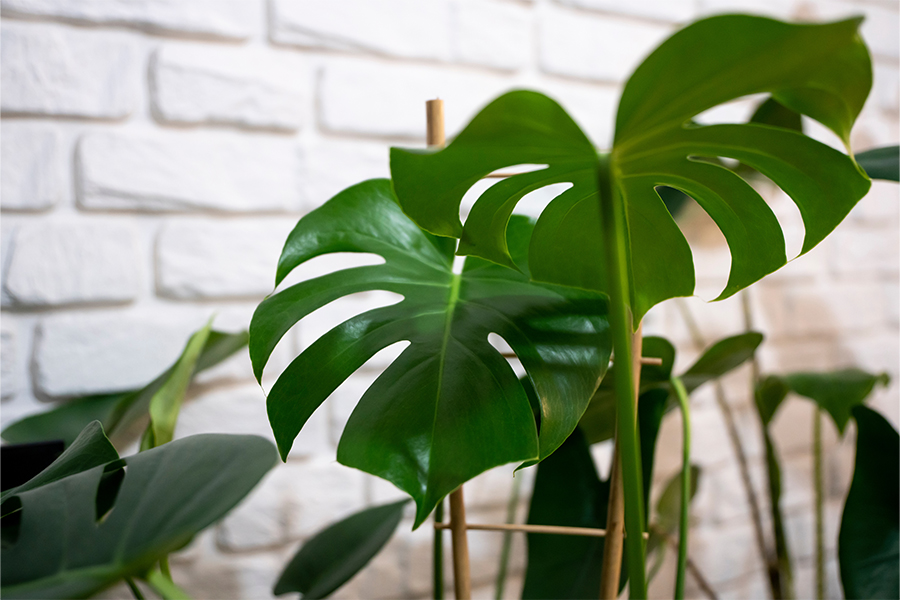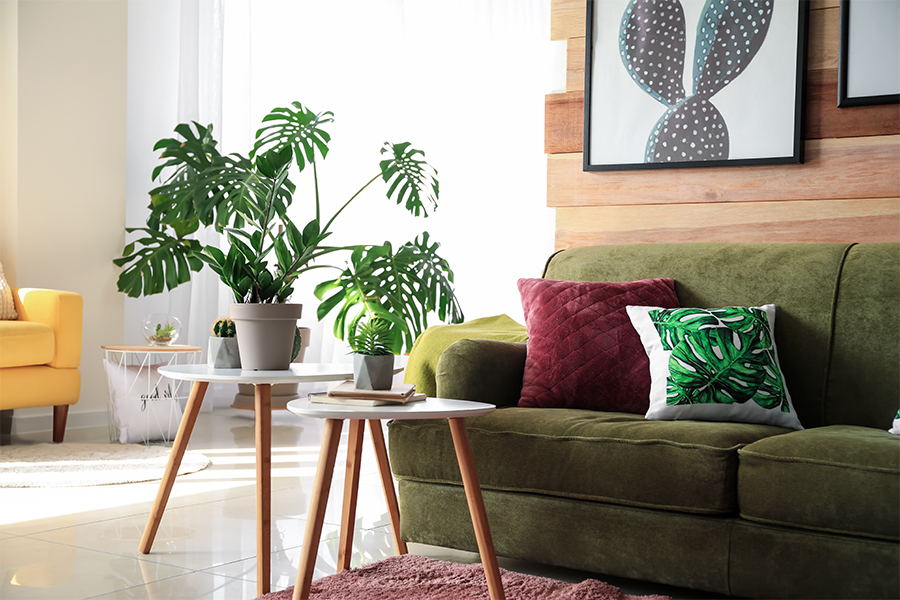Thriving With Monstera: A Guide to Propagation and Proper Care
Eight years is a long time to nurture any relationship, let alone one with a houseplant. But, when it comes to Monstera deliciosa, affectionately known as the Swiss Cheese Plant, those years of nurturing can transform your home into a lush jungle. If you've been proudly watching your Monstera grow but are now wondering, "Should I propagate?" or "Am I providing proper care?" you're not alone.
Recently, someone from the houseplant community I joined shared their heartfelt concern: after eight years with their beloved Monstera, they'd noticed some browning leaf tips and wondered if their lush companion had perhaps become "too full" or required propagation. This prompted me to research Monstera care, and I thought I'd share these insights, in the hopes they could help not just this plant parent, but many of us.
Let's get to the 'root' of this.

Is Propagation Necessary?
Monstera plants can indeed become large and full. While it's visually spectacular to see your Monstera flourishing with huge, dramatic leaves, there comes a point where propagation may benefit its overall health and vigor. Propagation is not mandatory, but it can be advantageous if you feel the plant is crowding itself, losing shape, or if you'd simply love more of these beautiful plants around your home.
The process is straightforward:
- Identify a healthy node: These are the knobby points along the stems where aerial roots emerge. Choose a section with at least one leaf and a visible node.
- Make the cut: Using sterilized scissors, cut just below the node.
- Water propagation: Place your cutting in water, ensuring the node is submerged. Roots typically appear within 2-4 weeks.
- Pot your cutting: Once roots are a few inches long, pot your new Monstera in fresh, well-draining soil.
Propagation not only rejuvenates your plant but also gives you a wonderful opportunity to gift pieces of your green companion to friends, enhancing their own indoor sanctuaries.
Tackling Those Brown Tips
Brown leaf tips are a common issue for indoor plants, especially in the winter months when indoor air becomes dry due to central heating. Monstera, originating from tropical rainforests, thrives in a humid environment. Dry indoor air can quickly dehydrate the leaf edges, causing them to brown.
Here are some simple solutions:
- Increase humidity: A humidifier nearby can work wonders, or you can frequently mist your plant’s leaves.
- Pebble trays: Placing a pebble-filled tray of water beneath your plant pot creates humidity as the water evaporates.
- Regular grooming: Trim off browned leaf tips to maintain aesthetics and encourage healthy new growth.
Optimal Watering and Feeding
You've done an admirable job keeping your Monstera healthy with your watering routine and occasional plant-food spikes. However, Monsteras are notoriously forgiving but also greatly appreciate consistency.
Watering tips: Allow the top inch or two of soil to dry out before watering thoroughly. Monsteras dislike soggy roots, so good drainage is key.
Feeding: A balanced liquid fertilizer applied monthly during the growing season (spring and summer) can significantly enhance growth. In winter, reduce feeding as the plant enters a rest phase.

A Note on Space
Monsteras are iconic for their sprawling nature. If your Monstera appears crowded, consider repotting into a slightly larger container every 2-3 years. This allows ample space for roots to grow and the plant to spread gracefully. Alternatively, giving it a moss pole or trellis to climb can make your Monstera happier and healthier, mimicking its natural climbing habit.
Caring for houseplants like Monstera isn't just about aesthetics—it's about fostering a connection with nature in our homes. Eight years is a testament to your commitment, love, and patience. With minor adjustments in care, humidity management, and perhaps a rewarding propagation adventure, you can ensure many more thriving years with your lush Monstera companion.
Remember, caring for plants is a journey filled with learning and growth, not only for your green companions but for you as well. Keep nurturing, keep growing, and your Monstera will continue rewarding you with beauty, grace, and a refreshing breath of nature in your living space.


